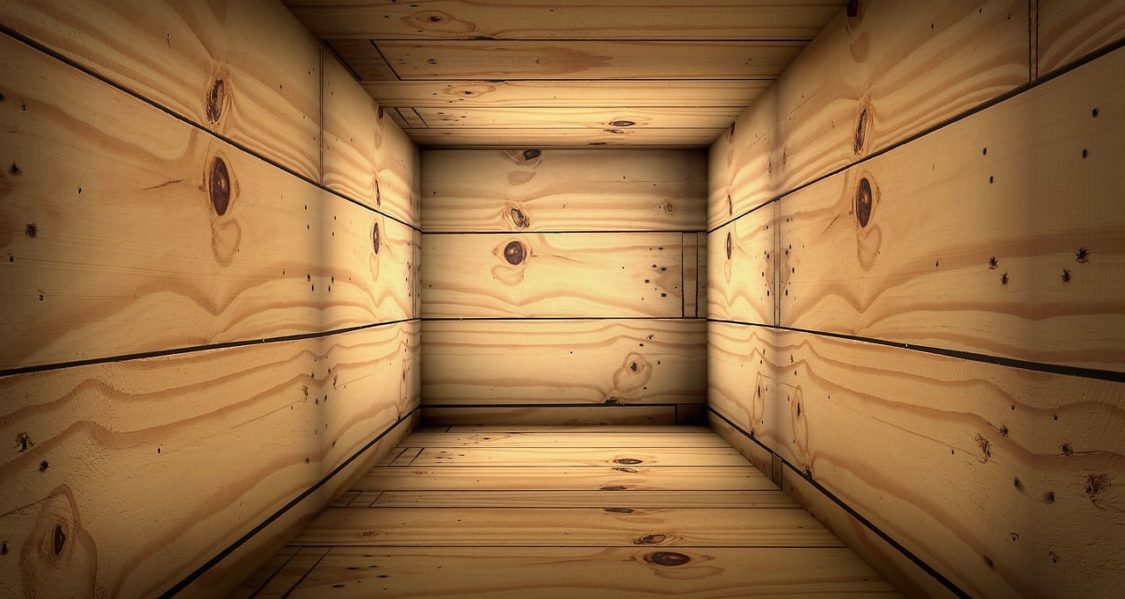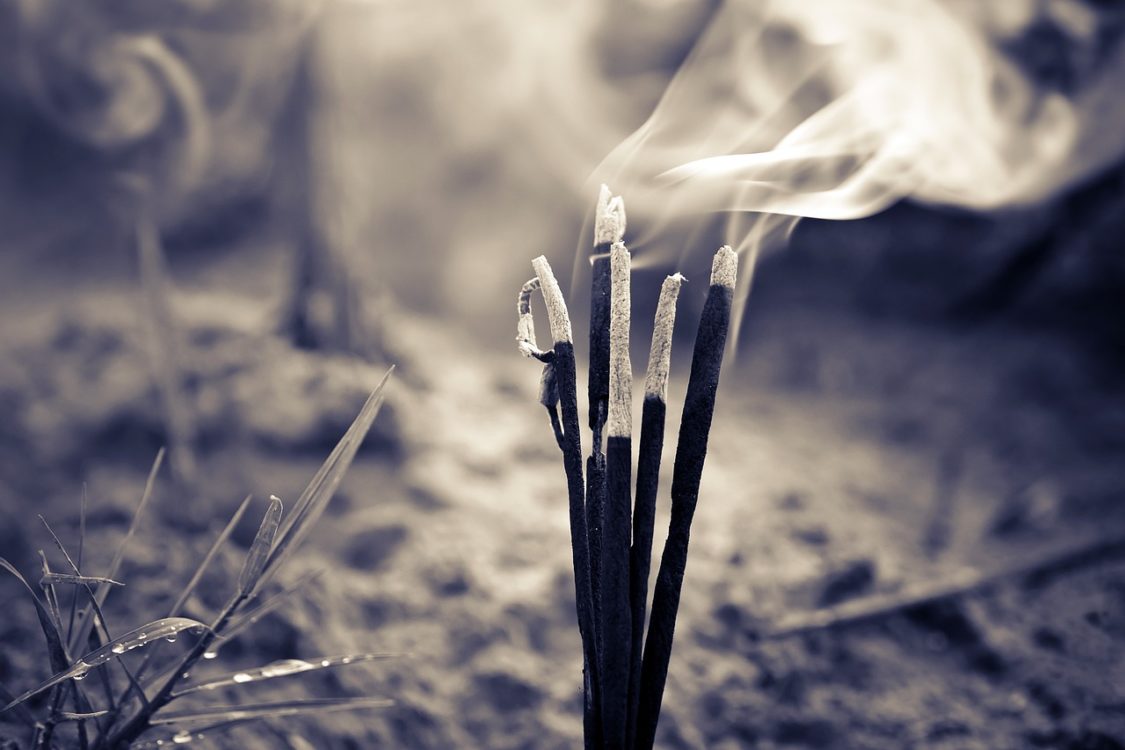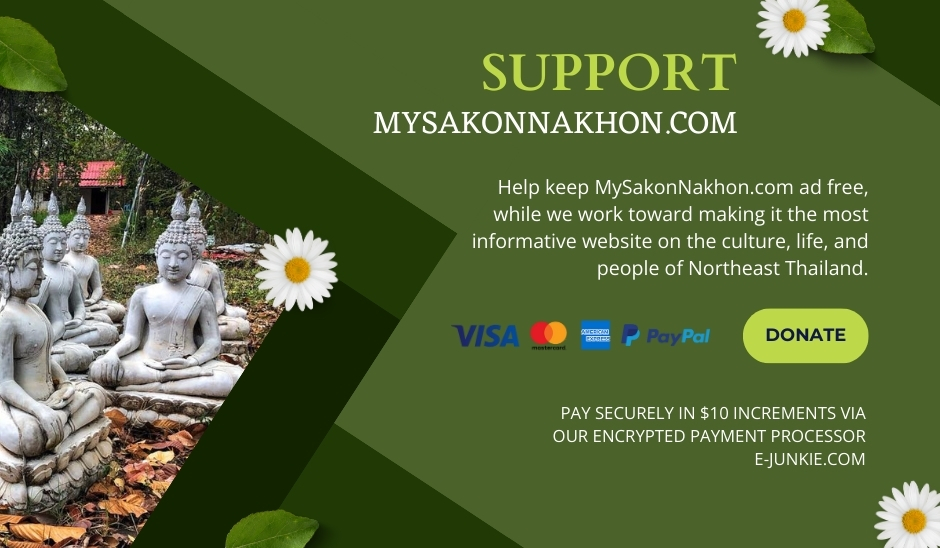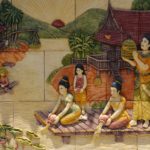
Thailand Karmic Cleansing – Mock “Requiem” Funerals

In recent years, mock funerals in Thailand have made international news. During the height of the Covid pandemic, temples such as Wat Bangna Nai in Bangkok attracted 100s of visitors a week who underwent mock funerals in the hope of being “reborn” with better financial luck. However, the ancient Thai Buddhist ritual of the Requiem Ceremony (พิธีบังสุกุล: phí-tee bang-sù-gun) really wasn’t meant to restore good fortune after an event like an epidemic. It traditionally was performed as a deep karmic cleansing for those who are experiencing a long and inexplicable run of bad luck (so bad that ordinary karmic cleansing activities, such as making merit, appear to be of no help).
The Requiem Ceremony wasn’t always a mock Thai funeral ritual. It began originally as a Buddhist ceremony to honor the recently deceased. Before the dead are cremated, Thai monks gather around the body, covered by a white sheet, and recite the Requiem Chant (การสวดบังสุกุล: gahn sùat bang-sù-gun). Then on completion of the chant/prayer, the sheet is pulled back and the deceased is ready to go into the afterlife in peace.
The Requiem Ceremony eventually was expanded to include “mock funerals” for karmic cleansing in Thailand. In addition to being performed on severely (and strangely) unlucky people, the ceremony is also conducted on those who are suffering a severe illness, especially if the cause of the illness puzzles doctors.
Thais view the ceremony not only as a karmic cleansing but an exorcism of sorts. Before the Covid epidemic, it was a somewhat esoteric Thai Buddhist tradition. While the ceremony is known by many old Buddhist monks, it’s not something commonly performed. However, having said that, we are personally aware of several mock funerals that have taken place in Sakon Nakhon and Northeast Thailand over the years.

How a Mock Thai Funeral to Exorcise Bad Luck is Performed
1. The person suffering bad luck or illness lies down on their back in the coffin, with hand over hand, and head turned to the west, in the likeness of the dead.
Then, a white cloth, like a corpse cloth, is used to cover the entire body.
2. Monks will start the ceremony by lighting incense and holding the hem of the cloth tied with holy string (sai sin). They then will perform the following requiem chant:
อะนิจจา วะตะ สังขารา อุปปาทะวะยะธัมมิโน อุปปัชชิตฺวา นิรุชฌันติ เตสัง วูปะสะโม สุโขฯ สัพเพ สัตตา มะรัน ติจะ มะริงสุ จะ มะริสสะเร ตะเถวาหัง มะริสสามิ นัตถิ เม เอตถะสังสะโยฯ
a-nít-jah wá-dtà săng-kăh-rah · ùp-bpah-tá wá-yá-tam mí-noh · ùp-bpàt chít-waa · nírú chan-chan dtì · dtay-săng woo-bpà-sà-moh · sù-kŏh · sàp-pay sàt-dtah má-ran · dtì jà · má ríngsù · jà · má-rít-sà-ray dtà-tăy-wah-hăng má-rít-săh-mí · nát-tì may · àyt-tà săng-sà-yoh
This chant deals with impermanence and the inevitability of the physical death of the body, which is nothing to fear.
3. After the monks have finished chanting the prayer, the head of the person in the coffin will be turned to the east.
4. The monks will then chant another requiem prayer:
“อะจิรัง วะตะยัง กาโย ปะฐะวิง อะธิเสสสะติ ฉุฑโฑ อะเปตะวิญญาโน นิรัตถังวะ กะลิงคะลังฯ”.
a-jì-rang wá-dtà-yang gah-yoh · bpà-tà-wing a-tí-sàyt-sà-dtì chù-tá-toh · a-bpay-dtà-win-yah-noh ní-rát-tăng-wá · gà-ling ká-lang
This signifies that the old life has burned away and a new auspicious life has been born.
5. After the requiem chant, the monks offer additional blessings, sprinkle holy water on the body, and the white sheet is removed.
6. The new born person steps out of the coffin, which is then burned to ashes, taking away with it all of the bad karma and evil that had been harming the person.
This mock funeral ceremony isn’t simply a “supernatural” one related to karmic cleansing in Thailand. It is a profound psychological process that encourages self-renewal and more ethical, generous living. By lying in the coffin, the person being exorcised of their bad karma and deeds, begins to truly understand the inevitability of their death, the impermanence of their body, and the things that truly matter in life: love, kindness, good deeds, and understanding.
- The Royal Ploughing Ceremony in Thailand – A History - May 8, 2024
- Dying Well the Buddhist Way in Thailand - May 7, 2024
- Comforting Words for the Brokenhearted in Thailand - May 6, 2024




